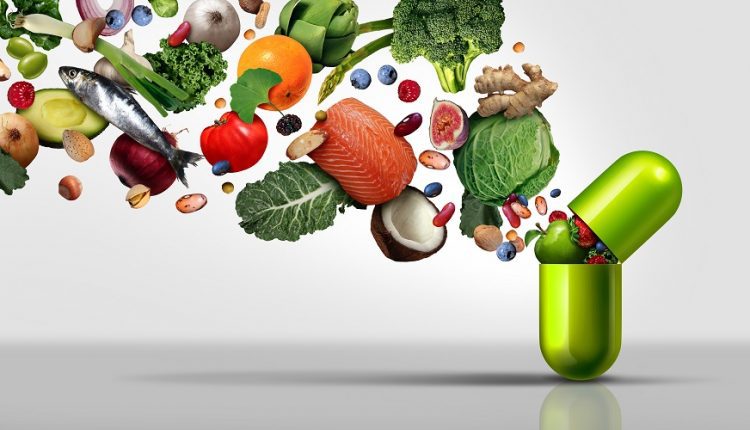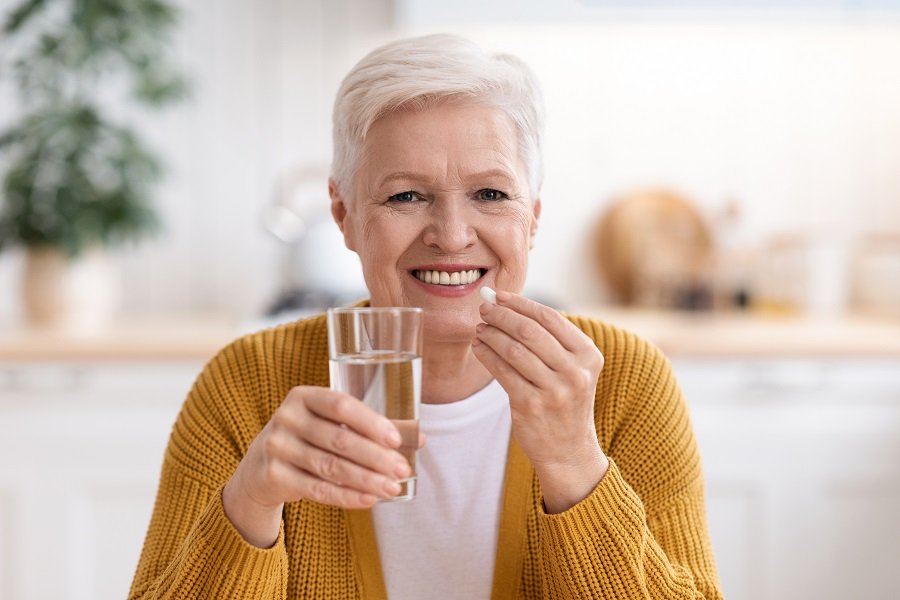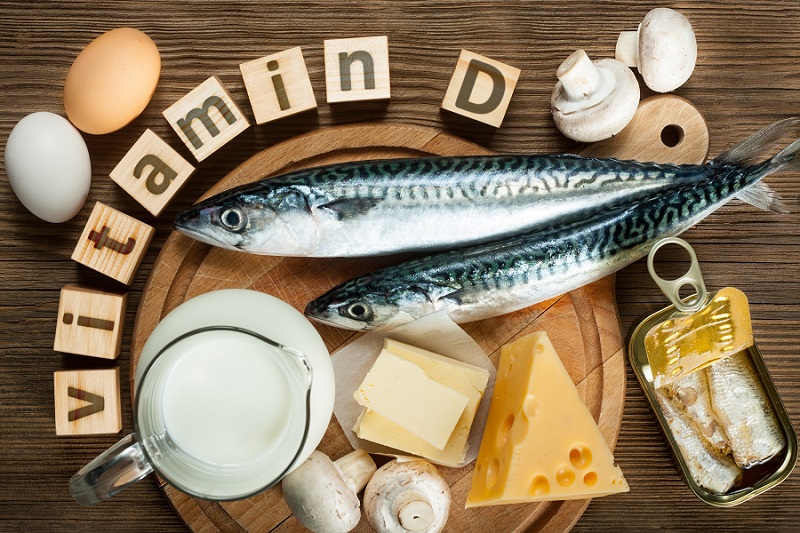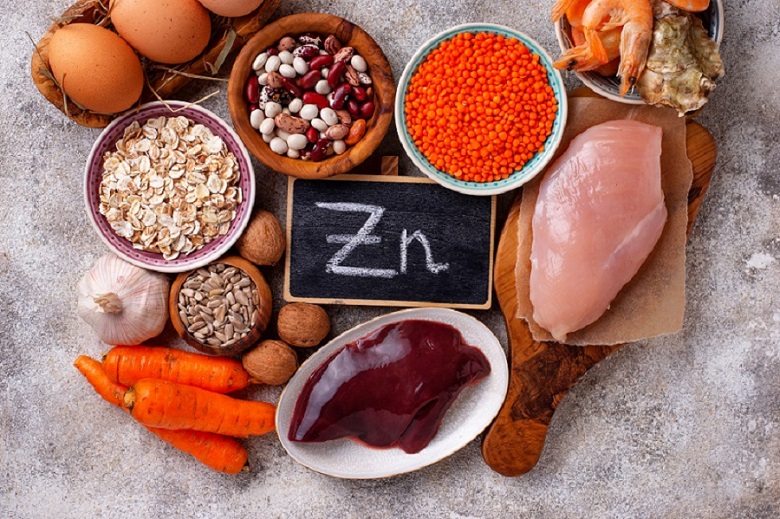
The 8 Essential Vitamins and Minerals for Boosting Immunity and Energy In Winter
Days are passing, and we are heading towards winter. Most of us are worried about how to keep ourselves healthy during winter. Furthermore, the Covid-19 pandemic is a growing concern and the rate of infection increases during winter. The elderly are among the most vulnerable groups to both common diseases and Covid-19.
In this regard, healthcare specialists believe that using various vitamins can help us. Many multivitamin supplements are available in the market that the elderly can choose from; however, they also can get their needed vitamins from different food available to them. Today’s Living Maples article will introduce some of the best vitamins for seniors.
Contents
Vitamin B
Studies have confirmed vitamin B’s various advantages for the body by enhancing the immune system. There is a group of B vitamins, each of which has remarkable effects on the body.
Vitamin B1 is essential for the better functioning of the heart, while Vitamin B6 helps glycogen and protein metabolism. The other vitamins in the B category, such as B2, B3, B5, and B12, are known to reduce fatigue and the energizing effects on the body.
It should also be noted that B12 is an essential vitamin to be used during the winter months. Depression is one of the most common issues that the elderly are dealing with. Hence, adding vitamin B12 to the diet can positively affect their mood and improve their brain’s functioning.
Some seniors have difficulty eating certain foods and prefer to take b6 or b12 supplements in consultation with their doctor since they may have side effects.

The elderly can get the required amount of B vitamins through trending diets for seniors.
Whole grains, legumes, red meats, and leafy greens are abundant sources of B vitamins. Therefore, seniors can ensure their health and wellbeing during winter by using these vitamins.
B12 Supplements
A rich source of vitamin B12 is grass-fed meat and dairy products, salmon, naturally raised poultry, their eggs, and the meat of internal organs of livestock (like black liver). According to the US National Institutes of Health, plants do not naturally contain vitamin B12, and fortified plant foods do.
Vitamin B12 can be found in edible yeast, fortified cereal products, and seaweed to some extent. Despite this, these foods do not absorb as well as animal products.
Vitamin C
The list of vitamins for the elderly should use during winter is incomplete without mentioning Vitamin C. This essential vitamin is also known as Ascorbic Acid and is among the best vitamins. Vitamin C has antioxidant qualities and can improve the immune system’s ability to fight against free radicals. Our bodies cannot produce vitamin C, so the diet should provide it. As said earlier, diseases such as cold, flu, etc., become widespread when the cold weather of the winter kicks in. The anti-viral qualities of this vitamin can help the elderly vigorously fight against viral infections.
Getting the required amount of vitamin C through Broccoli, sweet potato, citrus fruits, and strawberries is essential to ensure the immune system’s healthy functioning during winter. If the elderly cannot have fruits and foods rich in vitamin C, they can use supplements available at drugstores.
Vitamin D
“The vitamin of the sunshine” is another name for vitamin D, and our bodies need vitamin D for healthy functioning. Recent studies on the effects of vitamin D on the elderly have shown that it influences their immune response. A low amount of this vitamin predisposes the elderly to various infections.
Exposure to sunlight provides the majority of vitamin D required for the body. However, the lack of sunny days and the vulnerability of seniors to colds reduce vitamin D storage in our bodies during winter. Since it is one of the essential vitamins for the elderly, its lack can lead to symptoms such as fatigue and weakness of the muscles.

Seniors can get the required amount of Vitamin D through oily fish, mushrooms, and dairy products. The amount of vitamin D in these foods is low, and the elderly might need vitamin D supplements to satisfy their daily needs. However, excessive amounts of vitamin D can increase calcium absorption and create life-threatening symptoms.
Vitamin E
Vitamin E is not an essential vitamin and rarely do people face vitamin E deficiency. Still, it is on our list of the best vitamins for the elderly in winter. The cold weather of the winter can dry our skin, and vitamin E can increase the skin’s water-holding capacity. Hence it increases its softness and resiliency. Vitamin E lotions are also available on the market, and they are the best choices for supplementing the skin of the elderly.
Vitamin A
Like vitamin E, this vitamin is essential for the health of skin and mucous membranes (eyes, respiratory tract, intestines), which are at the forefront of fighting bacteria and viruses. This vitamin is present in the form of beta-carotene in plants. Various studies have shown the positive effects of antioxidants such as vitamin A on health, longevity, strengthening the immune system, and cell growth.
Nutritionists and doctors recommend that the elderly use fruits, vegetables, and natural foods instead of supplements to get vitamin A. Broccoli, butter, and carrots are the primary sources of vitamin A.
Iron
Many people worldwide are suffering from iron deficiency, and it is much severe in the elderly and can cause problems in the body’s production of hemoglobin. Hemoglobin has the role of transferring oxygen to various tissues, and it is essential for our healthy functioning. You might ask about the benefits of iron during winter. Iron is responsible for regulating the body temperature, and it can help you overcome the coldness of winter by keeping your body warm. Its deficiency can also cause tiredness, cold hands and feet, and brittle nails.
Iron can be provided by taking supplements or adding lentils, beans, leafy green, and red meat to the current diet of the elderly.
Omega 3
It is not a vitamin, but it plays an essential role in elderly health during winter. Omega-3 fatty acids maintain adequate levels of blood fats or HDL. Most seniors are suffering from joint disorders. The severity of these disorders increases during the winter, while omega-3 reduces joint pain and stiffness, osteoarthritis symptoms, and rheumatoid arthritis.
Omega-3 is a supplement that should be present in the supplements list of the elderly all over the year, and it is a must during winter due to its anti-inflammatory effects. As said earlier, omega-3 also benefits the joint health of the elderly, so it is excellent protection against falls in snowy winters. Better brain functioning and concentration are among the other benefits of omega-3 supplements.
Zinc
Like omega 3, zinc is not considered a vitamin. In the cold season, the possibility of many viral diseases and colds increases because usually, the immune system is weakened. Eating foods that contain zinc is perfect for improving the immune system and maintaining energy.

Zinc is an essential element for boosting the body’s immunity and energy in winter. It is also a necessary element for the health of the whole body. With zinc deficiency, the body becomes weak, and the person feels tired and bored during the day. Also, zinc deficiency causes pimples, skin burns, and dry skin. Colds, extreme tiredness, loss of appetite, mouth ulcers, respiratory or gastrointestinal infections, stunted growth, diarrhea, and night blindness are other zinc deficiency symptoms.
If these problems are not taken seriously, the immune system may become completely weak, posing a severe threat to the health of the elderly. Some foods containing zinc are sesame, egg, mushroom, and peanut.
Mineral Supplements
Seniors’ bodies need Vitamins and minerals to function properly.
The table below shows the required consumption of these minerals for men and women over fifty years.
| Minerals | The recommended amount for women over 50 years | The recommended amount for men over 50 years |
| Calcium | 1200 mg per day (70-51 years) 1200 mg per day (over 70 years) |
1000 mg per day (70-51 years) 1200 mg per day (over 70 years) |
| Sodium | 1.5 grams per day (equivalent to half a teaspoon) | 1.5 grams per day (equivalent to half a teaspoon) |
| Iron | 8 mg per day | 8 mg per day |
| Potassium | 2.6 grams per day | 3.4 grams per day |
| Zinc | 8 mg per day | 11 mg per day |
| Magnesium | 320 mg per day | 420 mg per day |
Final Words
Vitamins are essential to use during winter, but they should be included in our diet the whole year. They can improve our immune system, keep us warm, and prevent various diseases during cold weather. It is advisable to consult your doctor to get proper suggestions on using the best multivitamins and the right diet for your age and condition during winter. Remember, while vitamins and minerals can support a healthy immune system, they cannot “immune” or completely protect our bodies from infections on their own. However, a balanced diet rich in vitamins and minerals can help to strengthen our immune system, making it more effective at fighting off infections.
Last year my doctor gave me some multivitamin supplies even though my checkup test was relatively standard. I always eat healthily, and I try to eat various foods every day; I’m supposed to take one pill per day, but I don’t always remember to do that. After about two weeks, I took one today as I was reading this article!
You know, once my doctor told me that as we age, esp over 65, our body gets gradually less able to absorb the necessary minerals from food. So, we have to take multivitamin supplements to help it go. That’s why your doctor has prescribed supplements, but they won’t work if you don’t take them regularly.
Thank you for this article. I’ve been taking care of my grandfather for five years, and he was not used to taking vitamins at all. Since the global pandemic, he has started to take them. He is still reluctant, but at least now he listens to me when I say he needs it.
I think we need each vitamin if we want to have a healthier life, especially in the winter. Due to the senior’s body situation, they need to protect themselves from diseases in winter. Vitamins and minerals are the enemies with ills and weaknesses. We can find the vitamins in natural foods or pills. The important thing is, you should never stop eating vitamins, amino acids and vitamins.
I think vitamin D is the most important among other vitamins since its production highly depends on absorbing sunlight in the skin. In the winter, we have fewer sunny days since the production of vitamin D becomes lower. This lack of vitamin D may worsen if they are reluctant to eat some foods like milk and other milk products. That’s why I think most of us need to consume vitamin D supplements.
Hi! since the pandemic, I have taken the Vitamin C effervescent tablet. It is a tasty and orange-flavoured drink. Believe it or not, I think it is Vitamin C that immunes me against the Covid 19.
I have got a lot of deficiencies, so I have a lot of vitamins and supplements. I wish more doctors talked to their patients about actual lifestyle improvements more than medication. You can get the vitamins from vegetables and fruits. I feel way better when I eat naturally without supplements. We do not usually know that we have many different kinds of vitamins in our food, so eating a balanced meal is the best thing we can do. So, it is more reasonable to find out if you have deficiencies before even thinking of taking vitamins.
Hi! since the pandemic, I have taken the Vitamin C effervescent. It is a tasty and orange-flavoured drink. Believe it or not, I think Vitamin C immunes me against the Covid 19.
So about a year ago, I started taking multivitamins daily (Supradyn), And believe me, everything got better.
I could go through an entire day without being exhausted or sleeping in the day. My bodyweight came under control, and my waist lost the fatty bags.
Along with that, I took vitamin E (Evion400) daily.
My skin has become so much better. It’s not at all rough and white anymore. My lips are not cracked either, which always bothered me through winter.
I also have Less hair fall and fewer pimples on my face.
My mother (who is now in her seventies) told me a few months ago “It’s alright if you never follow any advise I’ve ever given you. But just take a calcium supplement, chewable, gummy, tablet…. I don’t mind. Don’t be like me when you’re 35. Take some calcium supplements “So there you have it. I’m taking calcium supplements now. Lol
Don’t bother yourself and have fruits every day. They are the main source of all vitamins. I’ve never worried about my vitamins. I did all kinds of tests on my blood, and there was no sign of vitamin shortage.
Our family didn’t really care for vitamin pills, but ever since the COVID outbreak, my mother and I have been regularly taking Vitamin D and Vitamin C pills. It was only the starting point of figuring out which vitamin is good for what, and now, we have all the vitamin pills we need at hand. I suggest everyone do the same. Even if you know that your body isn’t receiving enough of a particular vitamin by eating food, you can make up for it and take the associated vitamin pill.
I sadly have dry and sensitive skin, and in wintertime, my face suffers from extreme dryness. I’ve been relying on heavy night cream, but I recently discovered Vitamin B12 Cream Methyl B-12 and couldn’t be happier about it.
I just leave it on and rub it in without rinsing, and it feels fantastic! It’s not greasy or heavy feeling, plus it smells fantastic.
I feel the difference in under 20 mins. It is the right type of B12. It is utilized without needing your liver to convert it like other supplements. I feel younger and healthier.
I remember there was a time I had literally no energy to do anything. I wasn’t productive anymore and delayed all of my working activities. I thought it might be depression or some mental illness, so I made an appointment with a therapist. Thank god she asked me to take a blood test. It turns out all of the tired moods just happened because of the lack of vitamin B. Since then, I have gotten Neurobion shots every ten days. I can’t tell you how much I’m better now.